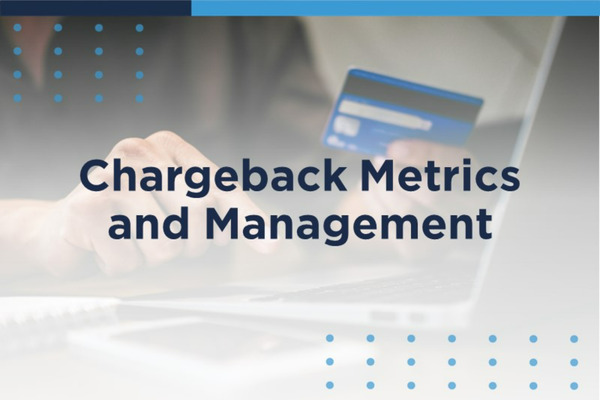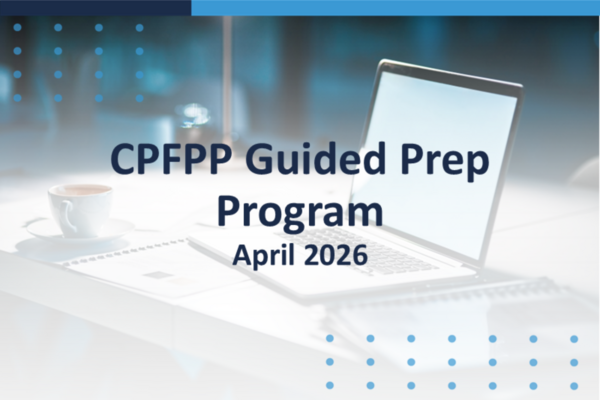
AI Fraud Attacks The AI Fraud Attacks course comprehensively explores the evolving threats posed by AI-driven fraud and equips participants with strategies to mitigate these risks effectively. It examines the dual role of AI in fraud, highlighting its potential to detect and perpetrate fraudulent activities. The course dives into various attack methods, such as AI-powered phishing, synthetic identity creation, and deepfake technologies, while also exploring adversarial tactics used to exploit machine learning models. Participants will gain insights into advanced detection and prevention strategies, including AI-powered fraud detection systems, behavioral analytics, and multi-layered security frameworks. The course also addresses ethical considerations and compliance with global regulations like GDPR and emerging AI-specific standards, ensuring participants understand the legal and moral implications of leveraging AI in fraud prevention. Additionally, learners will explore future trends, such as quantum computing risks and the weaponization of generative AI, to prepare for the rapidly evolving fraud landscape. Who Should Enroll? Fraud Analysts seeking advanced tools to detect and counter sophisticated AI-driven fraud schemes. Cybersecurity Specialists aiming to enhance systems to defend against emerging AI-powered threats. Payment Professionals interested in safeguarding payment systems and leveraging AI for fraud prevention. Business Leaders looking to understand the operational, financial, and reputational risks associated with AI-driven fraud. Program Details Program Level: Intermediate Program Field of Study: Specialized Knowledge Program Delivery Method: QAS Self-Study CPE Credits: 1.2 Advanced Preparation and/or Pre-requisites: Fraud Essentials is recommended. For more information regarding any concerns, please email us at programs@merchantriskcouncil.org. Refunds and cancellations are determined on a case-by-case basis. Cancellations and requests for refunds must be communicated in writing to programs@merchantriskcouncil.org. Refunds will not be issued once a course has been started. Additionally, courses must be completed within one year of purchase. Merchant Risk Council is registered with the National Association of State Boards of Accountancy (NASBA) as a sponsor of continuing professional education on the National Registry of CPE Sponsors. State boards of accountancy have the final authority on the acceptance of individual courses for CPE credit. Complaints regarding registered sponsors may be submitted to the National Registry of CPE Sponsors through its website: www.nasbaregistry.org Course Created: 2/19/2025 Read more

Bot Mitigation Strategies for eCommerce explores bots' complex and dynamic ecosystem and their vast – often hidden – impact on eCommerce. These automated threats are behind massive customer data breaches and hundreds of millions of dollars lost to fraud each year. They harm the customer experience and cause long-term damage to brands. They lower companies’ revenues while raising their operating costs. They are now threatening key IP by scraping proprietary AI models and APIs. Given these stakes, an effective bot defense is of interest far beyond Security and IT teams - it is a critical foundation to safeguard the future of a business. Participants will learn about different types of attack and their impacts, understand the motivations of the attackers, and signs and symptoms their business may have a bot problem. They will become knowledgeable about how AI is fueling these threats, what defenses are effective today, and key features to look for in a bot mitigation provider. Who Should Enroll? Cybersecurity professionals and IT administrators looking to enhance their bot detection and mitigation strategies. Fraud prevention specialists seeking to protect against automated threats and improve detection accuracy. Developers and data scientists interested in applying machine learning for real-time bot detection. Digital platform managers wanting to integrate advanced bot management into their security protocols. Risk management and compliance officers ensuring security measures meet industry standards in mitigating bot attacks. Program Details Program Level: Intermediate Program Field of Study: Specialized Knowledge Program Delivery Method: QAS Self-Study CPE Credits: 1.6 Advanced Preparation and/or Pre-requisites: Fraud Essentials is recommended. For more information regarding any concerns, please email us at programs@merchantriskcouncil.org. Refunds and cancellations are determined on a case-by-case basis. Cancellations and requests for refunds must be communicated in writing to programs@merchantriskcouncil.org. Refunds will not be issued once a course has been started. Additionally, courses must be completed within one year of purchase. Merchant Risk Council is registered with the National Association of State Boards of Accountancy (NASBA) as a sponsor of continuing professional education on the National Registry of CPE Sponsors. State boards of accountancy have the final authority on the acceptance of individual courses for CPE credit. Complaints regarding registered sponsors may be submitted to the National Registry of CPE Sponsors through its website: www.nasbaregistry.org Course Created: 11/06/2024 Read more

The Buy Now, Pay Later (BNPL) course provides a comprehensive exploration of one of the most transformative trends in modern payments. As BNPL becomes an increasingly popular financing option for consumers, it also presents new opportunities and challenges for merchants and financial professionals. This course offers a balanced view of how BNPL works, its benefits and risks, and its growing impact on commerce, technology, and regulation. Participants will gain a deep understanding of BNPL systems—from consumer onboarding and credit checks to merchant integration and chargeback processes. The course highlights best practices for checkout optimization, data analytics, and customer communication, along with long-term planning strategies in a fast-evolving regulatory environment. Learners will also explore the future of BNPL, including its expansion into new sectors, increased oversight, and innovations in technology and payment models. Who Should Enroll? eCommerce Professionals looking to enhance customer conversion and loyalty through flexible payment solutions. Merchants and Retailers considering BNPL integration to boost average order values and reduce cart abandonment. Fraud and Risk Managers aiming to understand chargebacks, data privacy, and risk exposure associated with BNPL. Financial Professionals and Strategists interested in emerging trends, compliance challenges, and market expansion. Program Details Program Level: Intermediate Program Field of Study: Specialized Knowledge Program Delivery Method: QAS Self-Study CPE Credits: 1.5 Advanced Preparation and/or Pre-requisites: Payment Essentials is recommended. For more information regarding any concerns, please email us at programs@merchantriskcouncil.org. Refunds and cancellations are determined on a case-by-case basis. Cancellations and requests for refunds must be communicated in writing to programs@merchantriskcouncil.org. Refunds will not be issued once a course has been started. Additionally, courses must be completed within one year of purchase. Merchant Risk Council is registered with the National Association of State Boards of Accountancy (NASBA) as a sponsor of continuing professional education on the National Registry of CPE Sponsors. State boards of accountancy have the final authority on the acceptance of individual courses for CPE credit. Complaints regarding registered sponsors may be submitted to the National Registry of CPE Sponsors through its website: www.nasbaregistry.org Course Created: 04/4/2025 Read more

The Chargeback Essentials course provides a foundational understanding of chargebacks and equips participants with the essential knowledge to navigate the dispute process effectively. This course covers key concepts such as the types of chargebacks, the roles of different stakeholders, and the step-by-step process merchants follow when managing disputes. This course also introduces important metrics, prevention techniques, and available tools to reduce financial losses and improve chargeback outcomes. Participants will explore the structure and mechanics of chargebacks, gain practical insight into reason codes, and understand how to construct strong dispute responses. By the end of the course, participants will have a clear framework for managing chargebacks, preventing unnecessary disputes, and aligning operations with best practices in compliance, documentation, and communication. Who Should Enroll? New Payments and Fraud Team Members seeking a clear introduction to the chargeback process. eCommerce Staff and Customer Support Representatives handling transaction issues and customer disputes. Small Business Owners and Merchants looking to reduce chargeback losses and understand their rights and responsibilities. Payment Professionals building foundational knowledge to support further chargeback management strategies. Program Details Program Level: Intermediate Program Field of Study: Specialized Knowledge Program Delivery Method: QAS Self-Study CPE Credits: 1.4 Advanced Preparation and/or Pre-requisites: Payment Essentials is recommended. For more information regarding any concerns, please email us at programs@merchantriskcouncil.org. Refunds and cancellations are determined on a case-by-case basis. Cancellations and requests for refunds must be communicated in writing to programs@merchantriskcouncil.org. Refunds will not be issued once a course has been started. Additionally, courses must be completed within one year of purchase. Merchant Risk Council is registered with the National Association of State Boards of Accountancy (NASBA) as a sponsor of continuing professional education on the National Registry of CPE Sponsors. State boards of accountancy have the final authority on the acceptance of individual courses for CPE credit. Complaints regarding registered sponsors may be submitted to the National Registry of CPE Sponsors through its website: www.nasbaregistry.org Course Created: 04/23/2025 Read more

The Chargeback Metrics and Management course provides a comprehensive understanding of chargebacks, their role in consumer protection, and their impact on merchants. It covers the chargeback life cycle, roles of key stakeholders, and essential metrics like chargeback ratio and win rate to guide performance improvement. Participants learn effective prevention strategies, such as fraud detection tools, clear communication, and proactive customer service, to minimize disputes and financial losses. The course highlights advanced technologies like AI, analytics, and automation for streamlining chargeback processes and improving resolution success. It also emphasizes regulatory compliance, dispute response strategies, and best practices, addressing global privacy laws and card network rules to help merchants maintain good standing and avoid penalties. Future trends, including blockchain, changing consumer behaviors, and stricter data regulations, are explored to equip participants for the evolving chargeback landscape. Who Should Enroll? Fraud Analysts will refine their ability to detect and respond to suspicious activity, reducing false positives and combating friendly fraud. Payment Professionals will gain actionable insights into chargeback metrics and trends to optimize payment processes and minimize losses. eCommerce Managers will learn how to mitigate disputes and improve customer satisfaction through clear communication and proactive measures. Chargeback Specialists will enhance their expertise in tailoring responses to reason codes and assembling compelling evidence to improve win rates. Program Details Program Level: Intermediate Program Field of Study: Specialized Knowledge Program Delivery Method: QAS Self-Study CPE Credits: 1.6 Advanced Preparation and/or Pre-requisites: Payment Essentials and First Party Misuse are recommended. For more information regarding any concerns, please email us at programs@merchantriskcouncil.org. Refunds and cancellations are determined on a case-by-case basis. Cancellations and requests for refunds must be communicated in writing to programs@merchantriskcouncil.org. Refunds will not be issued once a course has been started. Additionally, courses must be completed within one year of purchase. Merchant Risk Council is registered with the National Association of State Boards of Accountancy (NASBA) as a sponsor of continuing professional education on the National Registry of CPE Sponsors. State boards of accountancy have the final authority on the acceptance of individual courses for CPE credit. Complaints regarding registered sponsors may be submitted to the National Registry of CPE Sponsors through its website: www.nasbaregistry.org Course Created: 12/19/2024 Read more

Welcome to the CPFPP Guided Prep Program! Congratulations on taking the first step toward becoming a Certified Payments and Fraud Prevention Professional! You’re about to embark on an exciting and empowering journey that will not only enhance your expertise but also help you achieve your career goals in the ever-evolving world of eCommerce. Our CPFPP Guided Prep Program is designed to equip you with the knowledge and confidence you need to succeed on your certification exam. You'll be supported every step of the way through structured eLearning, expert guidance, and interactive materials. You will also have access to an catalog of courses that will help you prepare for the certification exam. Access to the course catalog will be enabled within 24 hours of enrolling in the program. If you ever need additional assistance, please don't hesitate to contact our team at education@merchantriskcouncil.org. We’re thrilled you're on this path and look forward to supporting your success. Start by visiting the Program Resources Section and downloading the CPFPP Candidate Handbook to use as a reference along your way. Read more
Shopping Cart
Your cart is empty
